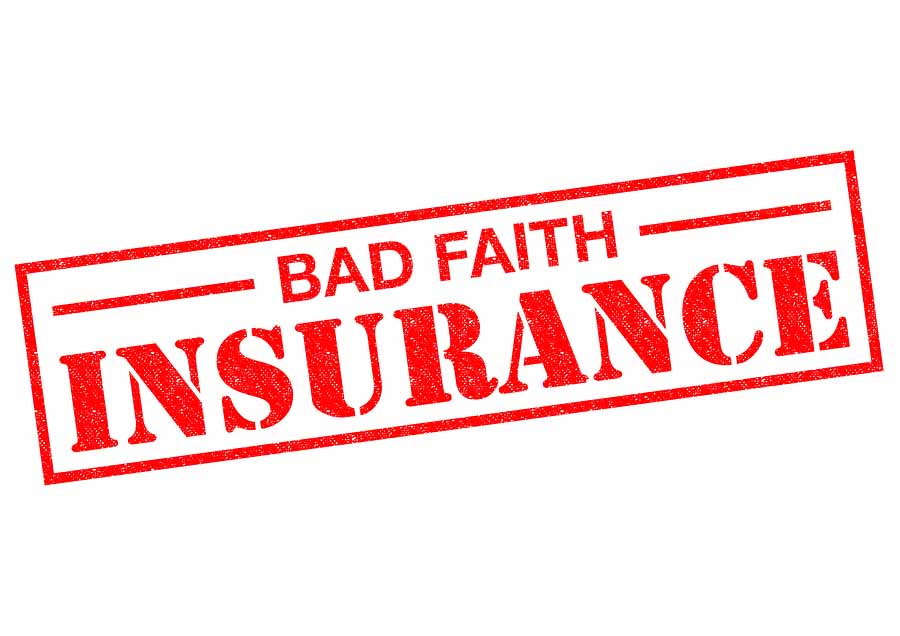What Can I Do If My Insurance Company Acts in Bad Faith?
 All of us want to believe our insurance company is on our side, it can be a rude awakening to find out they may not be. Though not all insurance companies are malicious, make no mistake that they are all driven by profit, not customer satisfaction. One of the serious issues that can arise due to the industries profit driven mind-set are bad faith claims.
All of us want to believe our insurance company is on our side, it can be a rude awakening to find out they may not be. Though not all insurance companies are malicious, make no mistake that they are all driven by profit, not customer satisfaction. One of the serious issues that can arise due to the industries profit driven mind-set are bad faith claims.
What is actually considered a bad faith insurance practice?
Simply put, any refusal, denial, underpayment, or delay of a legitimate claim by a policyholder. If an insurance company doesn’t have a valid reason to deny a claim, it may be deemed to have engaged in bad faith. Bad acts can vary greatly. A few examples are when an insurance company:
• Violates or misrepresents their contract language in order to avoid paying a policyholder’s claim.
• Fails to fully disclose the policy limitations and exclusions prior to purchase.
• Makes extreme or unreasonable demands in regards to proving a loss is covered.
• Only looks for evidence to deny a claim and not acknowledging evidence that supports it.
• Cites or quotes laws improperly so that they can deny your claim.
• Refuses to negotiate a fair settlement with you despite their obvious liability.
• Fails to perform a proper investigation of claim in a reasonable timeframe.
Sadly, these practices are more common than you might think, with many insurance companies taking advantage of the fact that policyholders don’t always understand their rights or legal options.
How Do Bad Faith Insurance Laws Curb These Practices?
The good news is that there are laws in place to help prevent bad faith insurance practices. When insurers commit bad faith against a policyholder, the law allows them to take legal action to protect individuals from unethical practices. States differ on issues that arise once an insured sues an insurer for bad-faith failure to settle. One relevant consideration in bad-faith failure-to-settle litigation is the effect a bad-faith claim may have on an insurer’s ability to withhold material on the basis of the attorney-client privilege. [ABA]
If your insurance company continues to refuse to provide a fair settlement, you can start by filing a complaint with your state’s insurance board. The board will initiate an investigation to determine if bad faith practices were involved. However, taking further legal action is often necessary. The insurance board cannot force an insurance company to pay any particular claim in full, they will only levy fines against them.
Not All Insurance Company Conduct Rises to Bad Faith
Bad faith practices can cause serious harm to a policyholder. It is important that you understand these practices so that you don’t suffer abuse from your insurer. However, keep in mind not all frustrating actions by insurance companies, or reasonable mistakes, will be considered bad faith practices. For example, a disagreement or difference of opinion on the total loss amount does not necessarily equate to bad faith practices. On the other hand, if the adjuster failed to provide any valid support for their deduction to your claim amount, then bad faith practices may have occurred.
We Are Here To Help
We hope you are never faced with a bad faith situation. However, if you have questions about seeking a bad faith insurance claim, we are ready to help. Contact Wall Huntington, in Wichita, at 316-265-6000 or send us an inquiry on our website.



